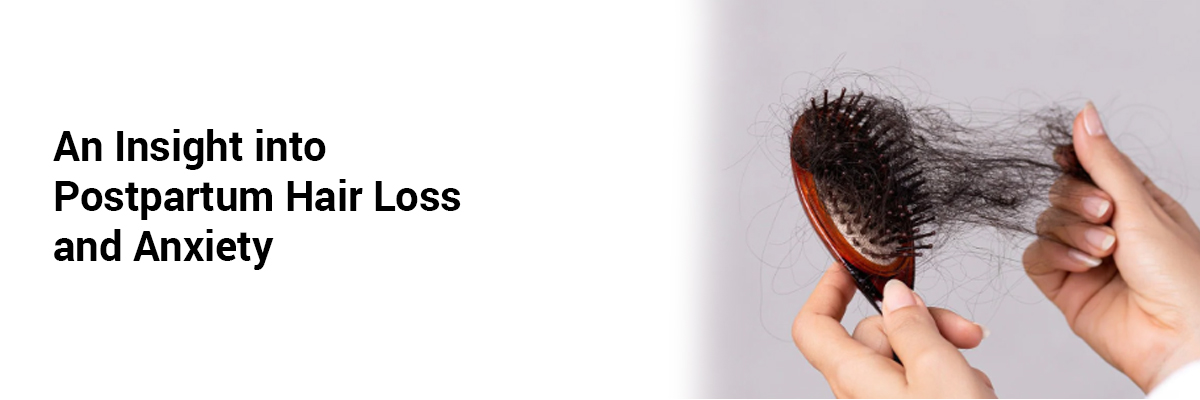
An Insight into Postpartum Hair Loss and Anxiety
Diffuse alopecia, which starts about three months after delivery and lasts for about eight months, is known as postpartum hair loss. While there are individual variances, severe cases of hair loss continue to the point where the skin is exposed, and some women choose to wear a wig or helmet. The current study assessed the association between postpartum hair loss and psychological symptoms.
This cross-sectional study utilized a questionnaire to assess postpartum women who delivered at two facilities, gathering data 10 to 18 months post-delivery. It employed a two-part mailing protocol to collect baseline characteristics, pregnancy and delivery details, childcare practices, and information on postpartum hair loss. Participants were categorized into two groups based on their psychological symptoms, and multivariate analyses were conducted to analyze the data.
A total of 331 responses were analyzed in the study. The results indicated the following:
- Women experiencing significant postpartum hair loss reported higher levels of anxiety compared to those with no hair loss, with an odds ratio of 4.47 on the Generalized Anxiety Disorder 2-item scale.
- Logistic regression analysis identified primiparity, increased postpartum hair loss, and elevated Athens Insomnia Scale scores as predictors of anxiety.
- Specifically, the adjusted odds ratio for anxiety among women with substantial hair loss was 4.58 (95% confidence interval: 1.18–17.74) when compared to those without hair loss.
Thus, the study concluded that increased postpartum hair loss was found to be independently linked to higher levels of postpartum anxiety as measured by the Generalized Anxiety Disorder 2-item scale.
Source: Hirose A, Terauchi M, Odai T, Fudono A, Tsurane K, Sekiguchi M, Iwata M, Anzai T, Takahashi K, Miyasaka N. Postpartum hair loss is associated with anxiety. J Obstet Gynaecol Res. 2024 Dec;50(12):2239-2245. doi: 10.1111/jog.16130. Epub 2024 Oct 27. PMID: 39462180; PMCID: PMC11608844.














Please login to comment on this article